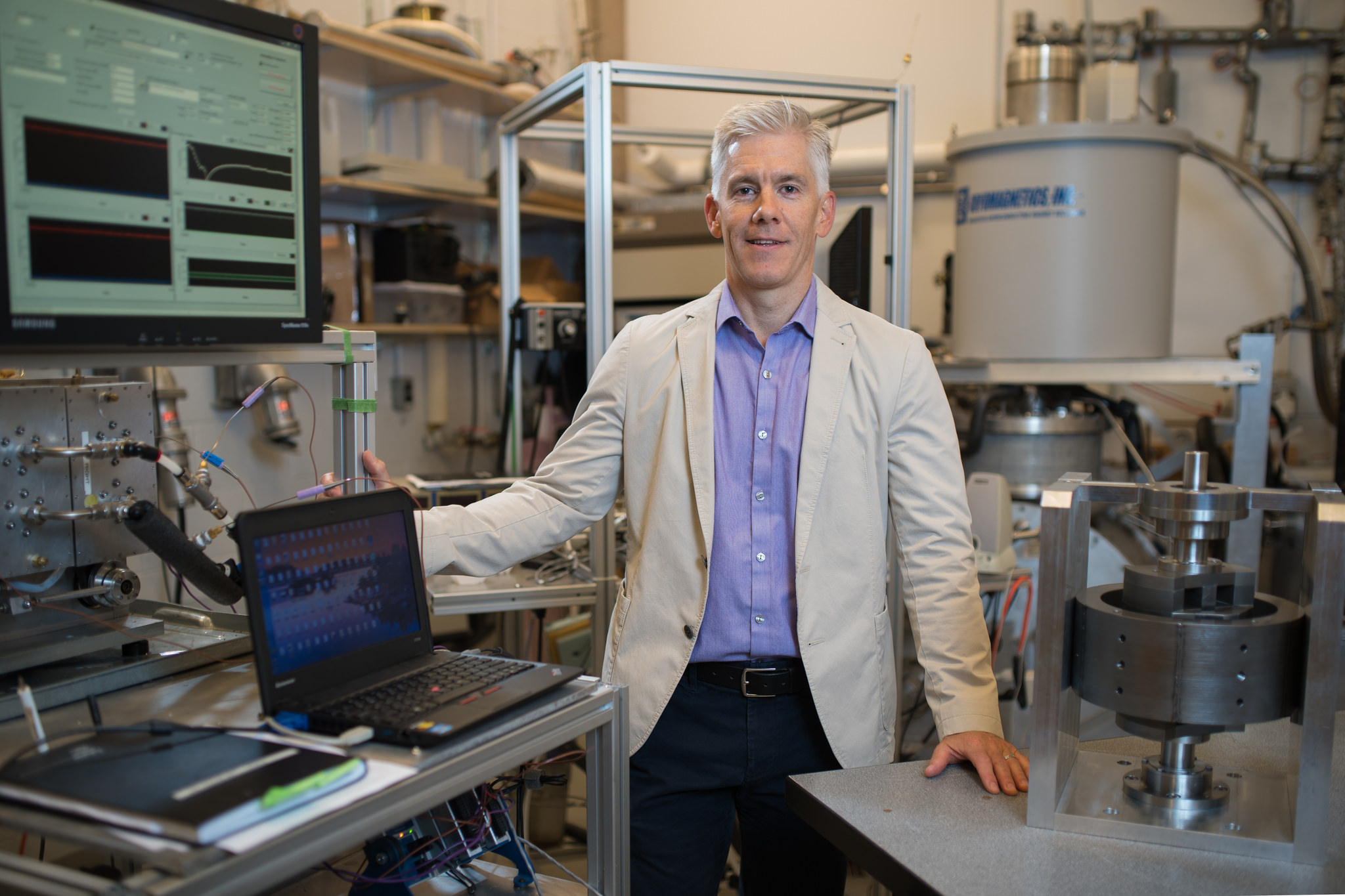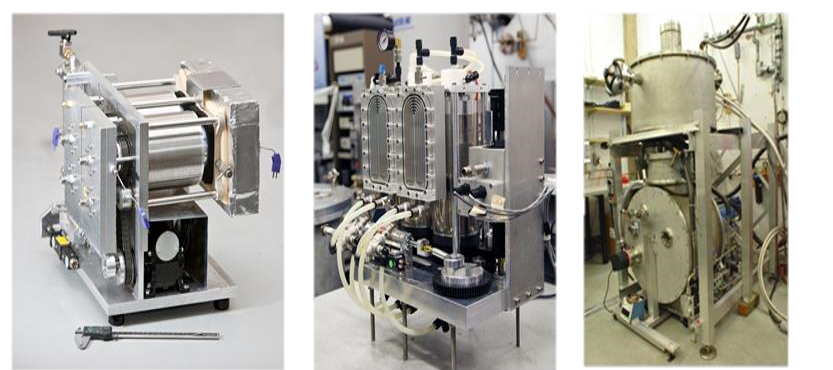
Welcome to AMRLab
AMRLab is a research laboratory in the Department of Mechanical Engineering at the University of Victoria and an affiliate of the Institute for Integrated Energy Systems (IESVIC). AMRLab focuses on energy systems – conversion, storage, and system optimization. Particular areas of interest are caloric cycles (with applications to heat pumping, cooling, and liquefaction), thermal systems, storage, hydrogen systems, electrification, and integrated energy system analysis.
Calorics
Caloric materials are solids that respond to changes in applied files such as magnetic, electric, and stress. A caloric cycle is analogous to classic gas, or vapour-compression cycles, for production of work from heat or active heat transfer with work input. Calorics have the potential for creating compact and environmentally friendly devices.
Thermal Design
Thermal systems operating at low temperatures support food, medicine, and industrial activities. A broad term describing the development of technologies operating, or producing, very low temperatures is “cryogenics.” Many fascinating phenomena occur when materials are cooled to temperatures not found in the earth environment.
Hydrogen Systems
Hydrogen is an energy carrier that can be produced using a variety of energy sources and feedstocks. Electrochemical conversions systems are key components for future energy systems using hydrogen. Hydrogen and electricity systems can be integrated to provide more sustainable energy services.
Energy Systems Analysis
Understanding complete energy systems is critical for rationally assessing and evaluating alternatives. Although an energy conversion technology may appear attractive when examined in isolation, systemic structure and feedbacks may suggest otherwise.
Back to class
Welcome to new and returning team members in AMRLab! Looking forward to further developing our integrated electricity-gas system analysis platform with fresh eyes.
Gas System Modeling
Time to ramp-up our efforts to leverage gas systems for energy system decarbonization! We are developing modeling tools for gas networks delivering sustainable mixtures of biomethane, hydrogen, and other low-carbon vectors. In conjunction with clean electricity, we...

Magnetic Cycles – An overview of research at UVic
A technical summary of the main activities related to research on magnetocalorics, active magnetic regenerators, and system analysis.